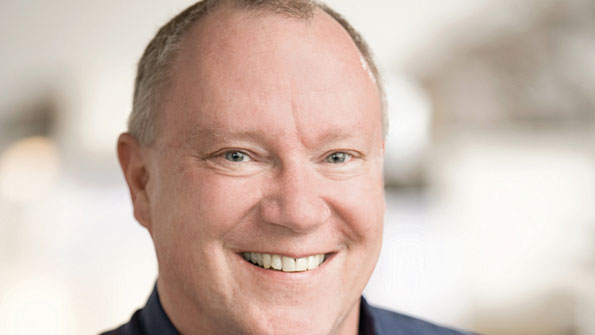It’s a great day for public safety
Over the past eight years, there have been three all-consuming stories that we have covered: the reconfiguration of the 800 MHz band, the narrowbanding of spectrum in the UHF band, and public safety's pursuit of spectrum in the 700 MHz band — the so-called D Block — that would provide the foundation for a nationwide wireless broadband network. Today, as Senior Writer Donny Jackson reports, Congress has struck a deal to make that network possible by reallocating the D Block to public safety and committing $7 billion of federal money to build it.
Six years ago, our reaction to Morgan O'Brien's suggestion at IWCE 2006 that such a network not only was needed but also was possible was twofold: (1) What a great concept! Public safety needs and deserves broadband; and (2) What complete lunacy! Public safety doesn't want broadband, and Congress would never go for it.
We knew that O'Brien, the founder of Nextel — a company that later merged with Sprint to create the nation's third-largest wireless carrier — was a visionary. But this? It just didn't seem politically feasible, which was the overwhelming sentiment at the time. When the FCC's version of O'Brien's original concept — centered largely on a public/private partnership between the commercial wireless and public-safety sectors — proved unworkable, the cries grew louder.
But O'Brien had planted a seed, and that seed slowly began to germinate and take root. Another notion was floated: What if Congress gave public safety the D Block and allowed it to control the network? More lunacy! How would this sector ever agree on how to govern a nationwide network, when it couldn't even come to regional consensus on anything — despite the fact that the federal government, through the SAFECOM grants, provided financial incentive to do so?
In any epic battle, there is a watershed moment when the tide turns. In this case, it was when the public-safety sector did indeed come together, forming the Public Safety Alliance and speaking with a unified voice. The importance of this cannot be overstated, for it gave champions in Congress — notably Sen. Jay Rockefeller (D-W.Va.) and Rep. Peter King (R-N.Y.), who were the first to take the leap of faith in their respective houses — the fortitude to embrace the idea of handing over billions of dollars to public safety to build this network. Even more than the money, the tough sell to colleagues had to be the notion of abandoning the auction of the D Block to commercial interests — costing the U.S. Treasury billions more dollars — especially during tight budgetary times.
In any epic battle, there are heroes. In this case, there are far too many to mention in this column — inside and outside public safety — but I would like to acknowledge a few key public-safety representatives: Harlin McEwen, the embattled chairman of the Public Safety Spectrum Trust (PSST), who held everything together in the early stages when this effort was a hairbreadth away from completely unraveling; Chuck Dowd, deputy chief of the New York City Police Department in charge of the NYPD's vast communications network, who asked tough questions that a great many people didn't want him to ask; Chris Moore, the San Jose police chief, who helped build consensus at many critical junctures; Jeff Johnson, the past IAFC president who outlined the value of broadband to the fire service; and Dick Mirgon, the past APCO president who rapped on so many doors on Capitol Hill that his knuckles must be permanently scarred.
So many metaphors come to mind when trying to describe this monumental feat and the effort that went into it. Given how long it took to accomplish this — almost six arduous, painful years — the image of a marathon immediately pops into one's head. Check that, the Ironman triathlon seems more apt. The fact that public safety faced the mother of all uphill climbs makes one think of scaling Mt. Everest — without oxygen and without Sherpas.
I think instead I will opt for "miracle," because when O'Brien first suggested the idea for this network, the collective reaction can be summed up in this sentence: "It would be a miracle if public safety ever got a nationwide broadband communications network of its own."
I'll reserve my final thoughts for O'Brien. There is much rejoicing today in public safety — not only will it get the D Block and $7 billion in funding, it also didn't have to give back its 700 MHz narrowband spectrum. As Charles Werner, chief of the Charlottesville (Va.) Fire Department and SAFECOM executive committee member pointed out in a guest column we published a couple of days ago, such a giveback would have created significant problems for many public-safety agencies.
And such rejoicing is well justified — at least it will be after the legislation becomes law during the upcoming days. But today as you slap backs, pop corks or whatever you do to celebrate, think about O'Brien. This didn't turn out quite like he anticipated. But without him, it never would have happened.
What do you think? Tell us in the comment box below.


















